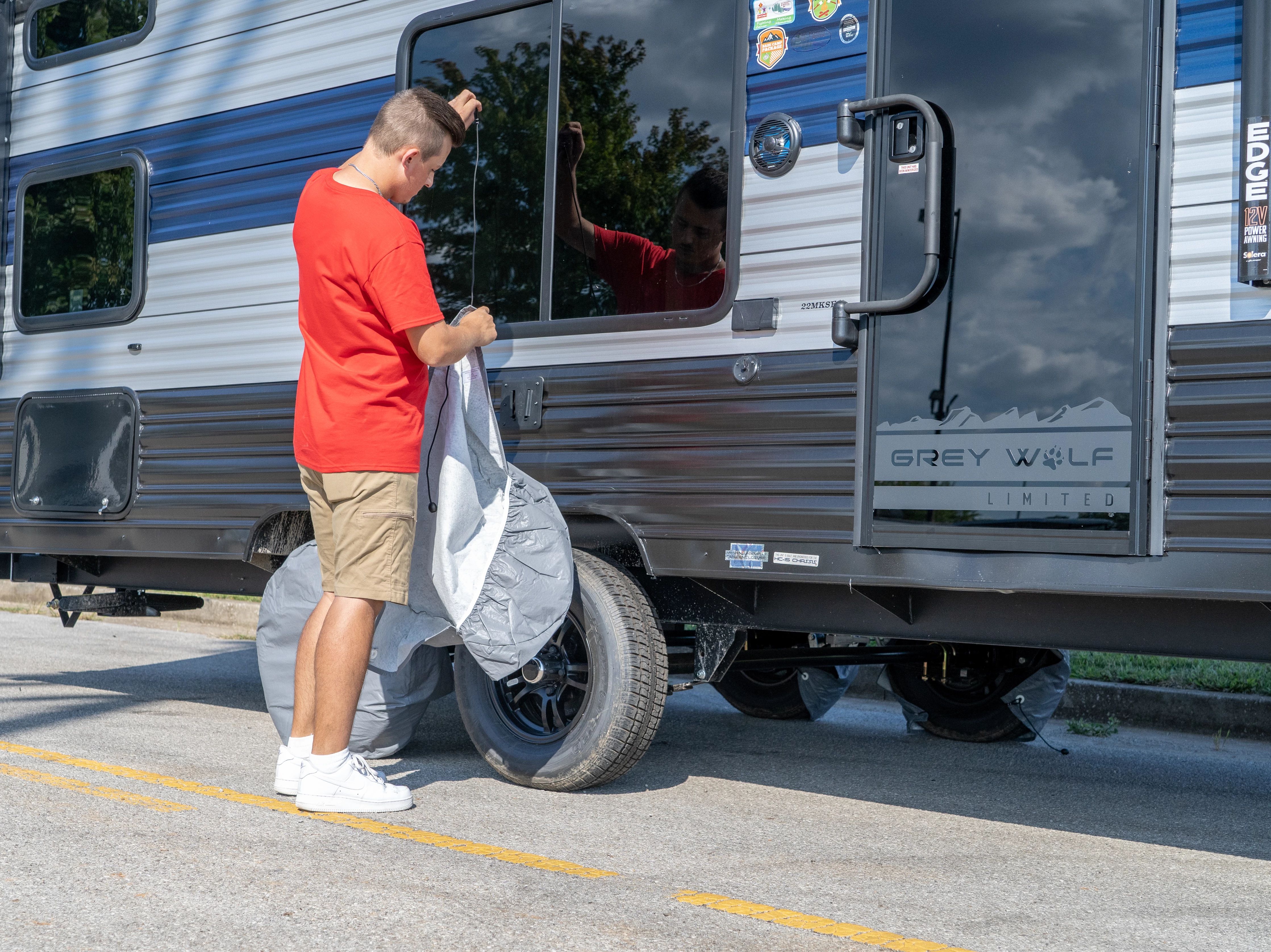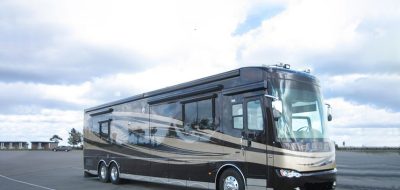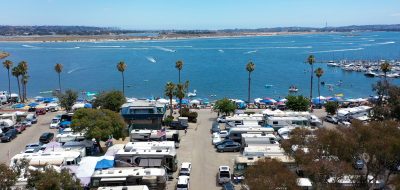At the risk of sounding like a dad, accidents happen — and that’s why they’re called accidents.
The reality is that most incidents have less to do with incompetence and more to do with forgetfulness. From leaving the stove on to improperly assuming your towed vehicle is secured, (and everything in between), double-checking your handiwork is the best way to cut down on misfortune.
Here are a few things to consider for a comprehensive pre-trip safety inspection to help you get on the road (and stay on the road) in one piece.
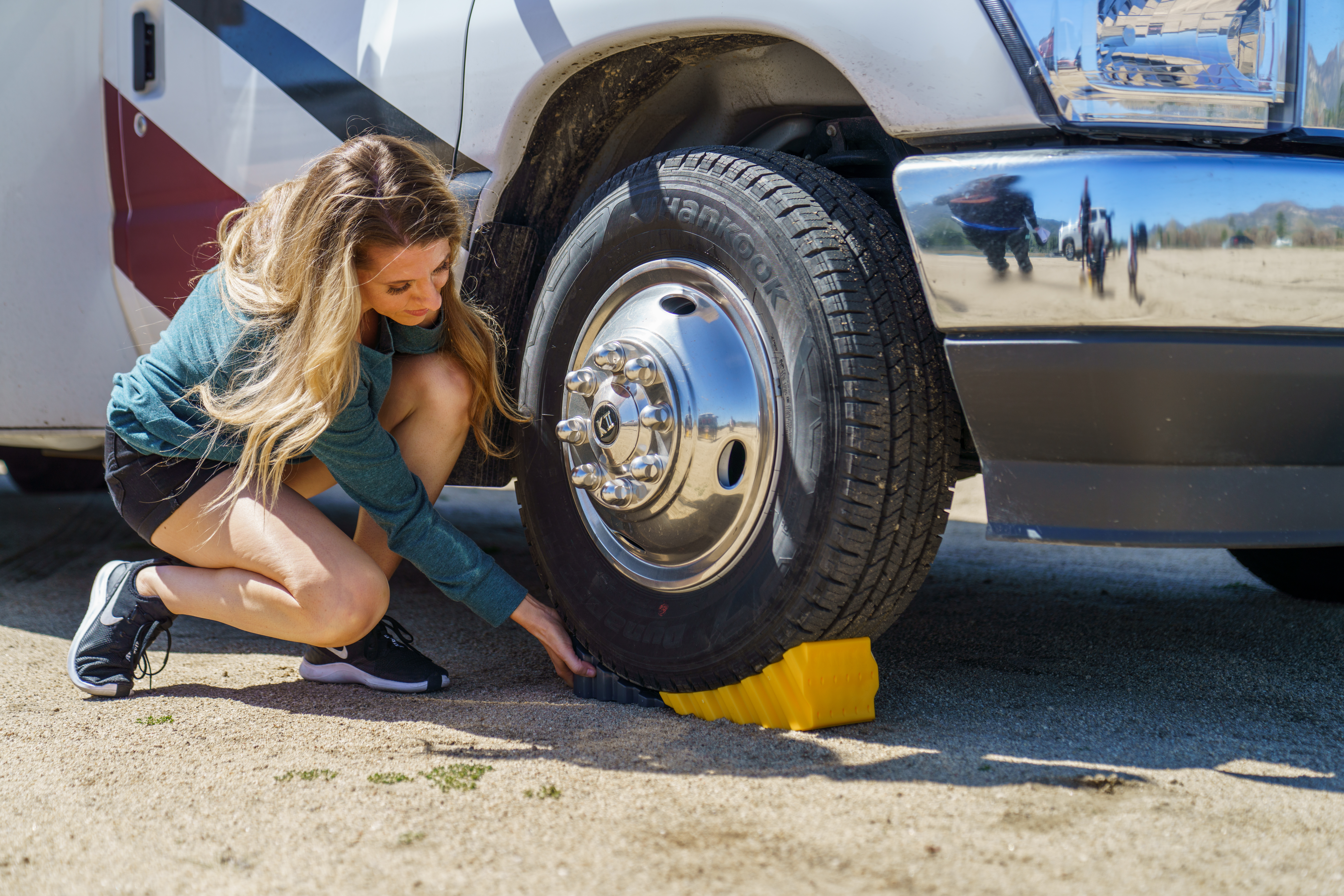
Pre-trip safety checklist
Retract slides, jacks, and awnings
Before starting your engine, ensure your slide-outs, jacks, awnings, and steps are fully retracted. While it’s pretty hard to forget a slide-out, it does happen — with some repairs costing well north of $2,000 a slide.
Tow bar and safety cables
Take time to check your tow bar and safety cables. Tighten any loose bolts, and make adjustments as necessary. Also, make it a point to keep your town bar clean and lubricated.
Check your fluids
Do a quick sweep for any leaks and make sure your oil, coolant, transmission, and brake fluids are all at the appropriate levels. Top off where necessary.
Test your brakes
Invest in a multimeter and regularly check your brakes before trips. Should you notice any unusual vibrations or noises, you’ll want to prioritize having them inspected by a professional. Failure to replace your brakes promptly could make for a very dangerous situation, let alone a very costly repair. Therefore, you should swap them out every year or 12,000 miles.
Batteries and electrical system
RVs rely on the electrical system and batteries to operate a number of different components. Whether it’s lighting, navigation, the fridge, the power inverter, or some other amenity, a dead battery can really put a damper on your trip. Before leaving, disconnect all power, give your RV’s battery a quick check, and ensure it’s holding a charge. Replace if necessary, but a quality RV battery should last about five years.
Double-check the kitchen
Good Sam receives hundreds of claims each year due to refrigerator fires caused by an electrical malfunction or someone neglecting to turn off their oven. So as you’re packing up, give the kitchen a quick once over, double-checking and turning off your stove, oven, and any other appliances.
Smoke detectors and propane leak detectors
Ensure smoke and propane leak detectors work properly and replace them when necessary. Gouges, dents, or even a hint of rust can cause your propane tanks to leak, creating an explosive and dangerous situation. For that reason alone, all RVs come equipped with liquified petroleum gas (propane) detectors. Always make it a point to test them before driving. Still, if you smell a distinct odor (similar to rotten eggs), feel a headache, or display any signs of carbon monoxide poisoning, you need to immediately shut off the gas and then take your vehicle to the nearest service center.
Tires
Tire blowouts are among the more common accidents for RVs. Before hitting the road, make sure your tires are properly inflated and still in good condition. Take note of any signs of wear and tear, cracks or bulges, and replace if necessary. Generally, it’s a good idea to rotate every 6,000 to 8,000 miles and replace every three to six years (or at the first signs of balding tread).
Mind your surroundings
Blind spots are tricky even for veteran RV drivers — especially at check-out when everyone else is trying to get out of dodge. To avoid damage to your vehicle or anyone else’s, make it a habit of surveying everything around you before pulling out. If you’re backing out, have a spotter guide you, or use rearview cameras and sensors to monitor your surroundings.
Latch the bay doors
While this one isn’t as much a “safety issue,” you should still ensure you’ve latched the bay doors lest you share your prized and stored possessions with the interstate.
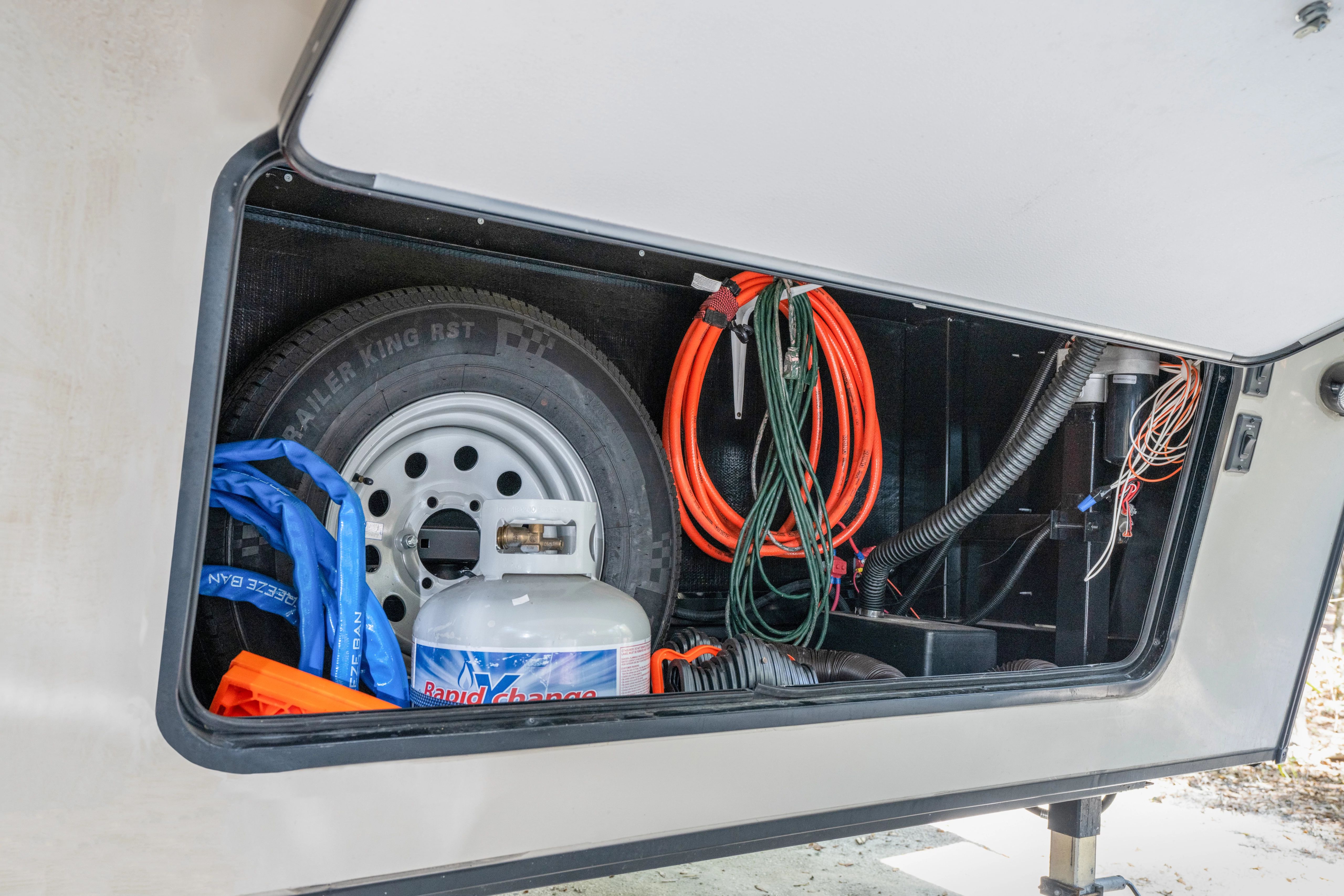
Gearing up
You’re only as good as the gear you pack for your trip. In case of an emergency — or to prevent one — here’s a list of essentials to always keep on hand. (Be sure to check out our comprehensive travel checklists, too).
- First aid kit
- Flashlight
- Knife/ pocket knife
- Flashlight and/or headlamp
- Water
- GPS/navigational tools
- Portable phone charger
- Carbon monoxide detector
- Smoke detector
- Generator
- Leveling ramps
- Stabilizer jack
- Tire pressure gauge
- Standard toolbox
- Surge protector
- Duct tape
- Propane and propane cover
- Hoses (water and sewer)

Be ready for anything
Even the most vigilant eye can’t catch everything the road will throw at you. The Good Sam Insurance Agency helps you find the best top-rated plan to cover your critical travel needs so you can adventure on without worrying about the unexpected. Sourcing coverage from the top insurance providers, Good Sam Insurance Agency finds you the right competitive plan and rate.

